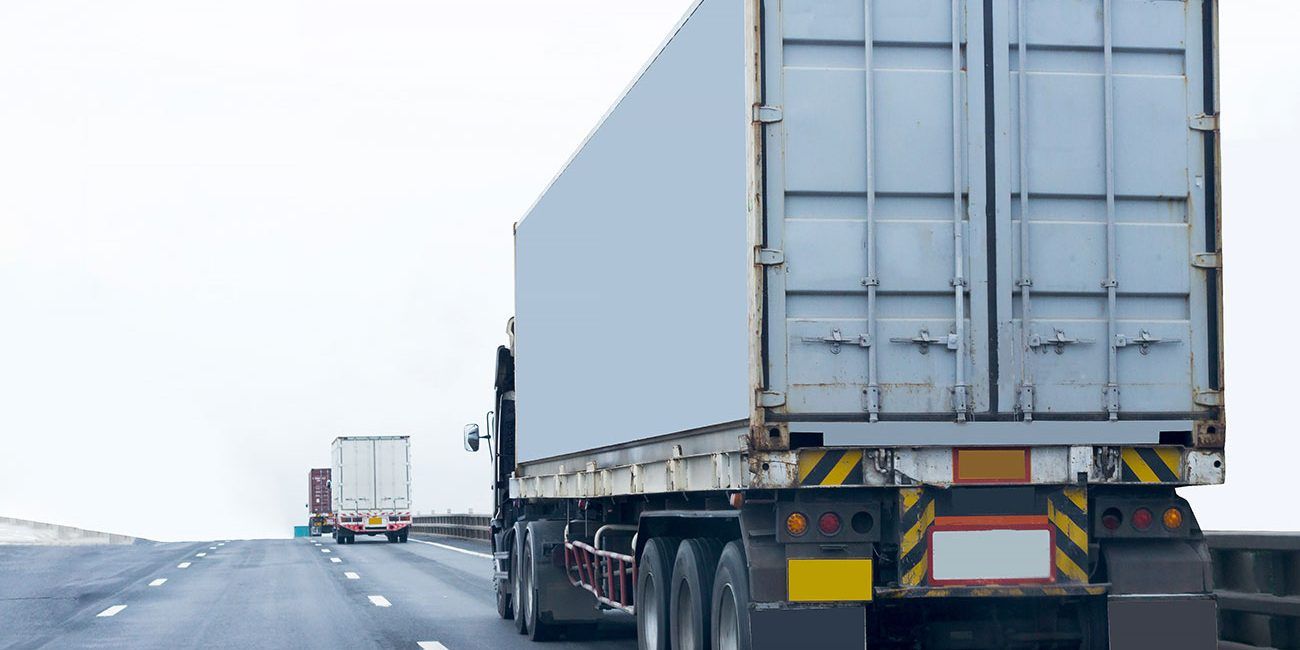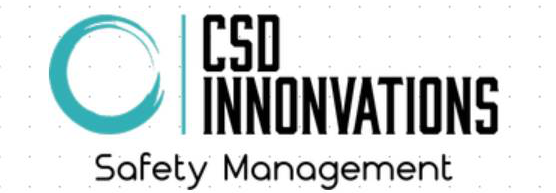Trucking Company Liability in a Truck Accident Claim
UNIKO Media Group • August 17, 2018

Truck accidents can cause serious property damage and severe injuries for everyone involved. In addition to filing an insurance claim or lawsuit against a negligent truck driver, you may also be able to pursue legal action against the driver’s employer trucking company. In some cases, however, the trucking company may allege that it is not responsible for the damages sustained because the truck driver was an independent contractor – not an employee.
Under the law, there is a fine line between employees and independent contractors. In contrast to employees, independent contractors usually work when they want, set their own hours, and in some cases, may even set their own pay rates. However, trucking companies may still be held responsible for the negligent actions (or inactions) of independent contractor truck drivers. For example, trucking companies can be liable under federal law when they lease a truck or a placard to the truck driver. Truck accident claims can be extremely varied and complex. Therefore, it is not recommended that you leave the outcome of your case to chance. The knowledgeable Clearwater truck accident lawyers at Dolman Law Group may be able to take legal action against a trucking company on your behalf and pursue the monetary compensation that you need and deserve.
Vicarious Liability on the Part of the Trucking Company
Under Florida’s no-fault statute, in a motor vehicle accident case, you must first exhaust your $10,000 in Personal Injury Protection (PIP) coverage before filing a claim or lawsuit against the responsible party. Alternatively, you can sue the at-fault party if you sustained a permanent injury in your accident. If the negligent truck driver is an employee of the trucking company, you may be able to file an insurance claim or lawsuit directly against the trucking company in addition to the negligent truck driver. Trucking companies may be responsible for the injuries and damages you sustained in your accident.
For the trucking company to be vicariously liable for the truck driver’s negligence, the truck driver must be operating the truck while on the job and while in the scope of employment with the trucking company. On the other hand, an employer trucking company cannot be liable for a truck driver’s negligent actions if the driver was acting outside the scope of his employment at the time the accident occurred. This is true even if, at the time of the accident, the driver was operating a truck which was owned by the trucking company. For example, if the driver was off the clock at the time of the accident or was running a personal errand, it is far less likely that the trucking company will share in the liability.
To determine whether a truck driver was within the scope of his or her employment at the time of an accident, courts often look to the following:
* Whether the accident occurred during a driver’s regularly scheduled working hours
* Whether the driver’s activities benefitted the trucking company
* The length of time it took the driver to engage in any personal activity while driving
* The specific intent of the driver
Other Bases for Trucking Company Liability In addition to vicarious liability, there are other circumstances where a trucking company can be deemed responsible for a negligent driver’s actions. Specifically, trucking companies may be liable for:
* Not providing the truck driver with the necessary skills and training
* Failing to make sure that the truck driver complies with all CDL renewal requirements
* Requiring the driver to operate the truck for hours on end without breaks (usually when there is a financial incentive for the trucking company and the driver to drive long hours)
* Allowing – or even encouraging – the driver to violate trucking regulations or the Federal Motor Carrier Regulations
* Failing to have the proper maintenance, repairs, or inspections performed on the tractor or trailer that the driver operates
When a Trucking Company is not Liable for a Truck Accident
Its not a very common situation, but when there is proof that a truck driver caused an accident on purpose then a trucking company may no longer be liable for their actions. There is still a chance that a trucking company may be found liable for the truck driver’s actions in the case they did not screen them correctly or showed some other form of negligence in hiring or keeping the driver as an employee like if the driver had a history of intentional accidents.
Generally, the line is drawn between driver and trucking company liability if the driver caused harm intentionally since the case would become one of intentional tort like an assault and battery case. The trucker’s actions would be seen as not having to do with the company but with their personal motivations instead.

Feeling safe while you or your employees drive is paramount. Therefore, it’s essential that the safe driving course you choose is based on a structured, coherent coaching system. The S.E.E.D Process is more than a checklist and not just another piece of paper for the employee file. It’s based on four tenets: S pot the at-risk behavior, E xplain the at-risk behavior and correct it, E nforce adherence to the correct behavior and D ocument what took place. Read on to learn more about how this approach can effectively enhance what you already have place, change at-risk behaviors and reduce risks for you and your company.

In a matter of weeks, online learning has become a growing trend all over the world. All kinds of subjects can be learned remotely, and driving safety is no exception. Our Safe Driving Webinars will provide you with dependable training so you can enhance your driving skills from the comfort of your home.

As we all know, you never stop learning, and that applies to driving, too. If you have taken defensive driving lessons in the past, a refresher session is a good way to keep your safe driving skills on point and acquire new abilities so you can stay safe on the road. Brushing up on your safe driving is always a good idea. Driving every day, we develop personal habits that may need to be corrected with the help of a trained professional. A refresher training session will provide you the opportunity to do this and hone other skills you’ve already acquired.

In the general public’s perception, ergonomics is usually associated with sports or with industrial design. However, this applied science can be extremely helpful at the workplace. From improving your employees’ wellbeing and morale to increasing savings, ergonomics can bring many significant benefits to your company.

Whether you are driving to the grocery store or traveling for vacation, you never know when you’ll need the skills necessary to avoid road hazards. Becoming a better and safer driver is always a smart move, and you can achieve this easily by taking Defensive Driving Training. Defensive Driving Training comes with many advantages, from reduction of insurance rates to a greater sense of personal responsibility. Read on to discover more about the ways you can benefit from this type of course.

We all have been in that situation at some point in our lives: a driver acts aggressively or recklessly and we run the risk of losing control and escalating the conflict, particularly if we are stressed or having a bad day. Dealing with an aggressive driver can be stressful and potentially dangerous. Unfortunately, road rage is on the rise, so it’s important to be prepared when we face it ourselves. Follow these tips to stay safe when you deal with an aggressive or dangerous driver. If you keep your anger in check and take responsibility for your own actions, you should be able to manage the conflict without losing your temper.

Buying a new car is a huge decision that shouldn’t be taken lightly. There are several features we need to look for when choosing a particular car. Finding the right car safety features might vary from one person to another, but there are some essential features we simply cannot ignore. Some of these car safety features include shatter-resistant glass, airbags, anti-lock braking systems, pre-collision technology, and stability control. If you are looking to buy a new car, make sure you look for these car safety features.

Being a successful commercial driver comes with a lot of hard work and dedication. After all, this kind of jobs requires much more than just driving. There are several essential commercial driver skills we should develop in order to become outstanding employees, and these are some of them. In order to become a successful commercial driver, we should make sure we work on our communication, navigation, responsibility, commitment and self-motivation, and organization.

Employing drivers for our company comes with many aspects we must carefully consider in order to keep these drivers safe and engaged. Also, employees who drive company vehicles can represent a significant liability risk if we are not selective with the candidates we hire. In order to keep our drivers safe and engaged, we must make sure we hire the right candidates. We should also keep them trained and updated, have our vehicles well-maintained, schedule regular breaks, and offer attractive incentives, too.

Besides being a state requirement, having car insurance can help you stay protected in case a driving accident happens. Being a safe, responsible driver is more than a suggestion, as accidents can happen at any time, to anyone. However, there are several common habits, behaviors, or simply honest mistakes that can make you accidentally void your car insurance. To begin with, driving under the influence of drugs or alcohol is obviously one of them. Using your car for criminal activities is definitely one of them, too. However, there are more other reasons, more innocent incidents or slips, that could accidentally void your car insurance. This list includes not notifying your insurance company about recent modifications, using your car for ridesharing, and even driving with your pet inside your car could void your insurance too. We know that for auto enthusiasts, car modifications are a part of your passion. There is nothing wrong with that. But modifying your car without consulting with your insurance company might result in higher premiums. You could accidentally void your car insurance too. This happens because of two reasons, basically. First, the modifications might increase the risk of having an accident. Increasing this risk won’t make your insurance carrier happy. Second, it could increase the risk of theft, which won’t make you happy, either. This is why we should always consult with our policy provider before doing any changes to our car. After all, you are paying for them to protect both you and your vehicle. Rideshare platforms like Uber and Cabify have become highly popular during the last couple of years. They provide a safe and convenient transportation alternative (at least most of the time). They have also proven to be an excellent employment alternative that represents significant additional income. In order to join such platforms as a driver, a specific type of insurance is required. When you purchase a car insurance policy, you need to inform the company what you will be using the car for. First, you need to let them know if the car is for personal use or business use. There are two types of personal usage, which are leisure, and commuting. If you’re planning to use your car for ridesharing services on the side, you need to inform your company and make sure you also have a business car insurance to protect you during the rideshare hours. Many of us can’t live without our furry best friends and bring them along every time we can. Besides, pets in cars are cute and funny. Who doesn’t let a laugh or even a smile go when we see a dog enjoying the feel of the wind on its face? Regardless of the cuteness, our insurance company might see bringing our pet while driving a potential risk factor. Anything that represents a potential car accident will be frowned upon by any smart insurer. Thus, having our pet in our car without properly securing them could accidentally void our car insurance. When we think about it, a pet could easily distract us while driving, or even get in the way and cause an accident. This is why we need to properly secure them. Otherwise, you and your pet will not be covered in case an accident happened.






